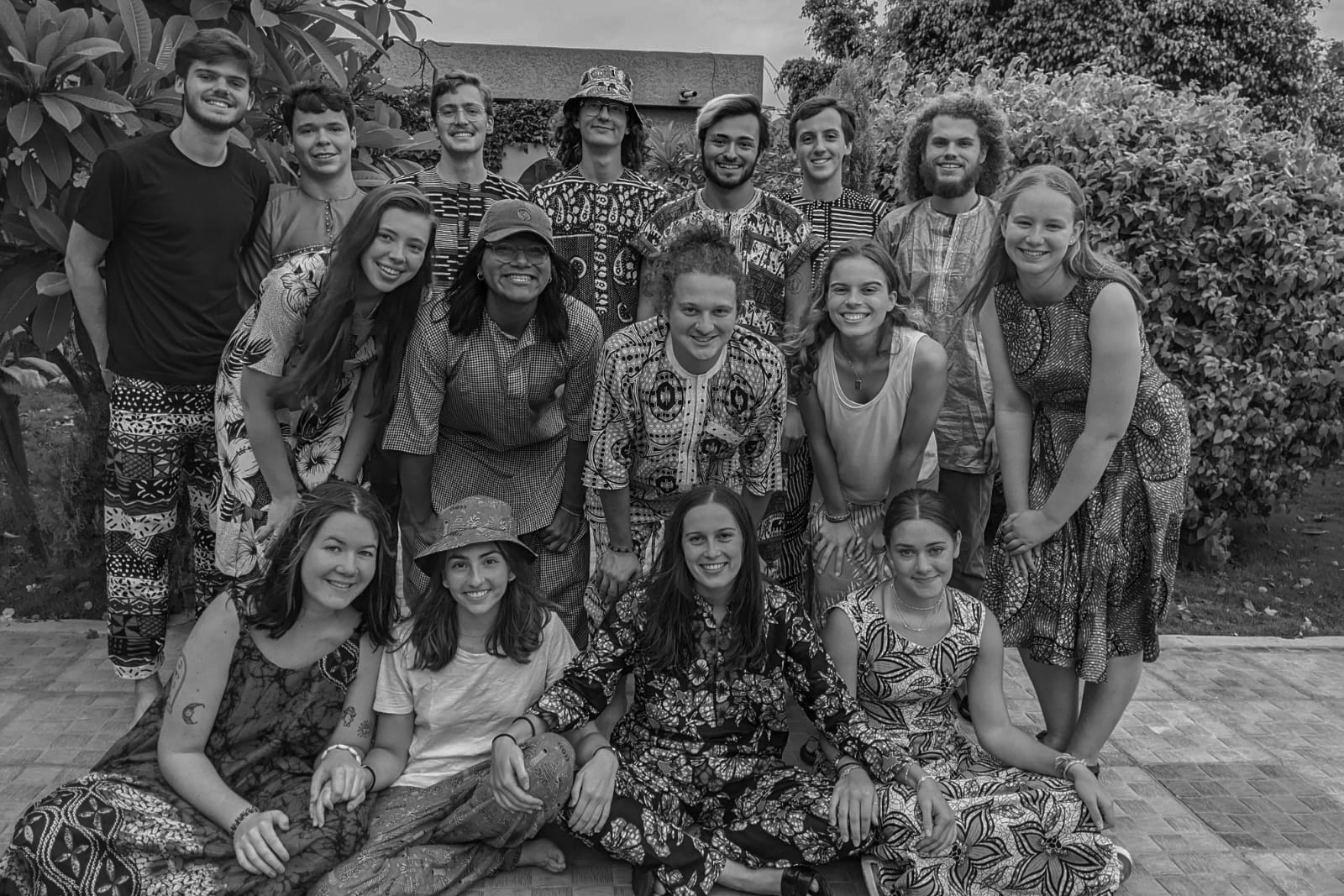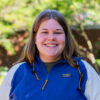16 GC students and two faculty leaders departed for their 13-week Study-Service Term in Senegal in early May. The group returned in late July.
Goshen College’s Study Service Term (SST) is a program that each GC student experiences in some capacity, whether through SST alternate courses, hybrid semesters or a 13-week semester studying and serving abroad. SST contributes to GC’s motto, “Culture for Service,” and core value of global citizenship.When the group arrived in Senegal, they strapped luggage to their bus, traveled an hour to Thiès, and stayed in a small dormitory the first few nights.
“I remember getting there and feeling overwhelmed,” said Suzanna Yoder, a senior social work major. “I had to look up simple phrases like ‘where is the bathroom?’ and ‘I’m really outgoing, but I’m bad at French so you might think I’m shy.’”
Days after arrival, students connected with host families.
“These random people would show up to this little dorm, take one of us, and just disappear into the city to go wherever they lived,” said Axel Brown, a senior biology and secondary education major.
For the study portion, the students learned French and Wolof — the national language and most widely spoken language of Senegal, respectively — each morning. The students would eat lunch with their host families. “We would always eat off of a shared plate,” Yoder said.
Upon returning to school, there would be a guest lecture on religion or culture. During study, students also went on field trips over weekends to further explore Senegal.
For service, Yoder was placed in Grand Mbao where she and Samuel Stoner-Eby taught English through an organization called The Humanitarian Association, Friends of the School. Teaching a variety of ages, they realized the challenges of language barriers and designed lesson plans, despite their limited teaching backgrounds.
“At first, we thought it would be impossible to come up with 30 lesson plans, as Samuel is a physics major and I am a social work major,” said Yoder.
Brown and Sam Scheele were placed with the Beer-Sheeba Project for their service term.
“It is an agroecology and reforestation effort,” Brown said. “It’s really unique because it’s located in between three separate villages. To get their land, they provided a treaty that promised a well for drinking water in exchange for land that was free from grazing animals.”
The two began their time digging fields for vegetables. Next, Brown and Scheele designed brackets for bamboo shading for a building’s roof.
“We had to learn different skills to begin this project,” Brown said. “A very nice Senegalese man taught us to weld which helped. We ended up wearing sweatshirts and long pants to protect our skin in the full heat. It was pretty intense.”
Before departure, the group from GC was reunited for a final celebration with everyone’s host families for gratitude and farewells.
“At the final celebration, I introduced myself with my host family’s last name, and I accidentally mispronounced it,” Yoder said. “In Wolof, I called myself ‘Suzanna Crazy’ and the entire room laughed, but I didn’t realize that I said it wrong.”
One of Brown and Yoder’s takeaways from their time abroad is that society in the United States is much more fast-paced than in Senegal.
“I learned how to just be, and not worry about what I’m supposed to do next,” Yoder said.




